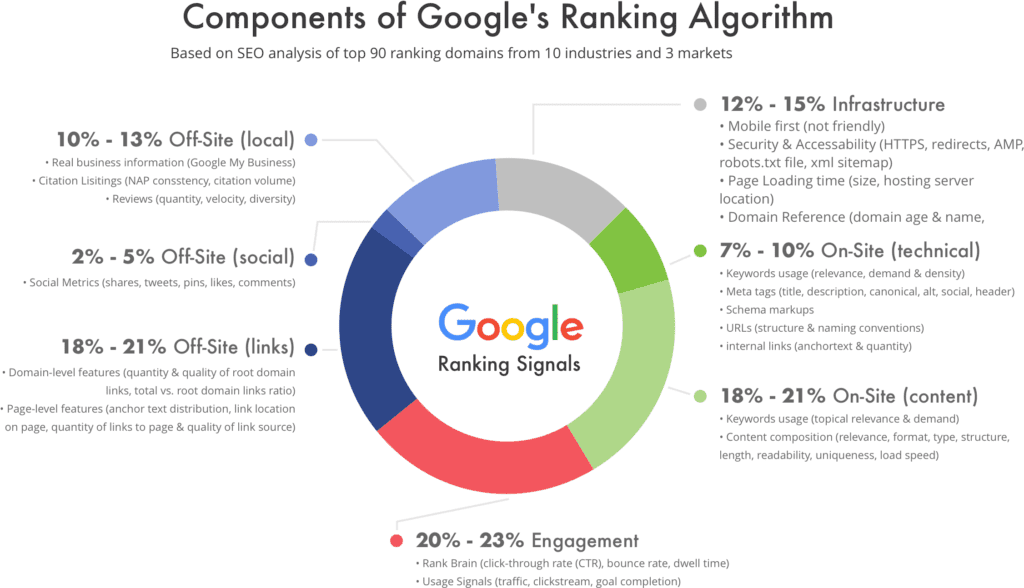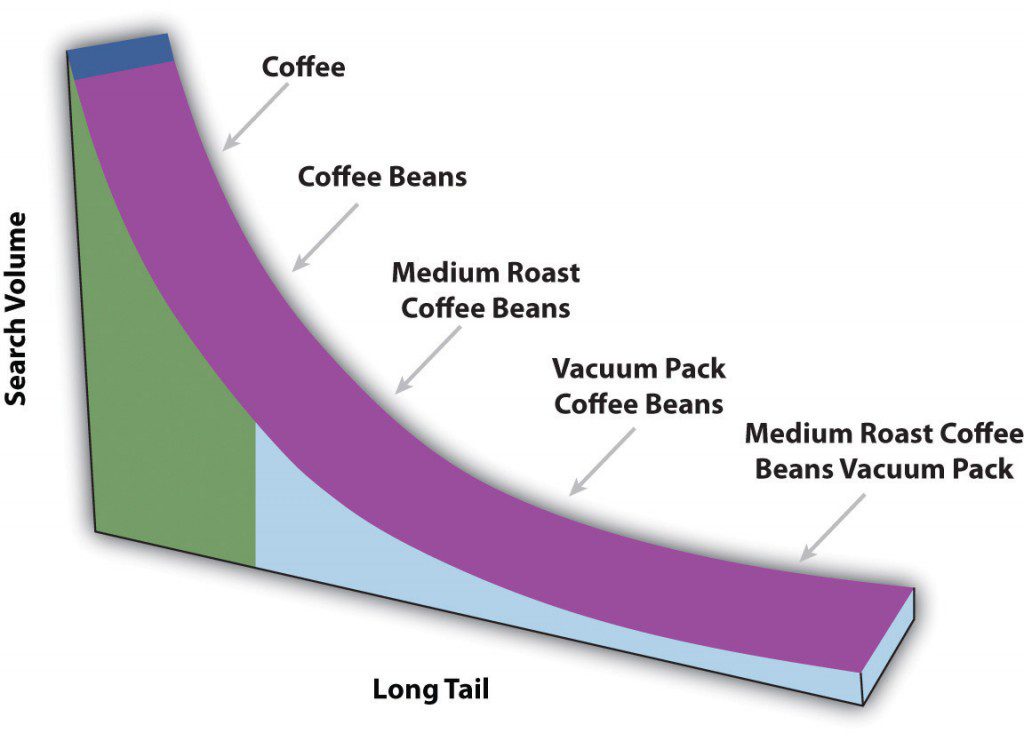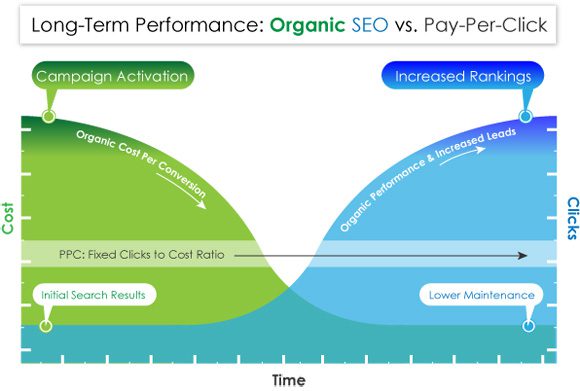“SEO doesn’t matter anymore. SEO is dead. SEO isn’t what it used to be,” I hear all the time from struggling marketing teams trying to gain traction with their campaigns.
It’s unfortunate because, while these people are correct that SEO has changed dramatically over the years, they’re wrong about one crucial point: The premise of their search for “what is SEO” is incomplete.
What these people want to know is, “what are the new SEO tactics that pay off?”
They’re not looking for a formulaic equation that can be plugged into an algorithm and spit out higher rankings on Google.
They’re looking for direction – a compass so they can figure out what works in 2021 and beyond.
On one hand, these people deserve what they’ve asked for because SEO is a constant diversion from the truth: Content marketing and social media are about as close to scientific quantification as you can get when it comes to marketing your business online.
The ugly truth about SEO that everyone knows is…
Truth #1 – Google doesn’t want to help you with SEO.
Truth #2 – Google’s algorithms are designed to reward the people who make their users happy and punish those who don’t.
And, since this is true, we know that:
Truth # 3 – SEO is all about satisfying your audience and giving them a good user experience so they visit your site, take action, and keep coming back.
Truth # 4 – SEO is about providing content that’s relevant to your target market and using proven tactics to reach the right people at the right time.
And, if we look at it this way, we can see that SEO doesn’t matter anymore because content marketing does what SEO used to do:
1. SEO is Dead
SEO was once the keyword-stuffed, link-building machine that kept you from ranking for anything other than easy terms like [best iPhone cases].
You could outsmart Google’s algorithms and even fool your competitors into submission if you had enough time and money to spend, or if you were a well-known brand with a big budget.
Nowadays, Google’s algorithms are constantly changing and it’s nearly impossible to stay on top of them all because they’re designed to reward users who take their time to do things right rather than the people who try to game the system.
It’s also harder than ever for new businesses or startups to get noticed because everyone and their neighbor is trying to reverse-engineer the new SEO.
And, if you’ve got a small or medium-sized business, then this shift in SEO tactics means that you don’t have millions of dollars to spend on link building (not that it worked anyway).
So what’s a modern marketer to do?
2. SEO Isn’t What It Used to Be
SEO is no longer about spammy backlinks and keyword stuffing. Those days are over. They never existed in the first place.
That’s not to say that you shouldn’t optimize your content for keywords because that won’t ever happen.
Search engines still use links as a primary ranking factor and Google is still the dominant player with over 70% market share, but you don’t have to buy thousands of links or host parties for bloggers in a desperate attempt to get them to link to your site.
What this means is that SEO isn’t about manipulating Google anymore. It’s about using tactics that make users happy – “best practices” that make sense from a user’s perspective.
This is the truth about SEO and it’s an ugly truth because you can’t cheat your way to success anymore. If you want to rank high in Google, then you have to create great content so people link back to that content naturally.
Suggested Reading: How To Build Backlinks That Google Will Love?
3. The Truth About SEO Tactics for 2021
Now that we’ve covered the basics, let’s get to the nitty-gritty and talk about what works for SEO in 2021.

Quality Content Will Always Work For SEO
It doesn’t matter if you’re optimizing for local or international markets or if your target audience is millennials or baby boomers.
Content marketing will always matter for SEO because it’s the best way to reach and engage your target market. It always has been; it still is, and it always will be.
I’m not going to waste your time telling you how easy this is or how inexpensively you can get started with blog content, social media, and podcasts.
You’ve already done that.
Instead, I’m going to give you some tips on how to get a jump-start with your content marketing campaign.
Here’s what works (and doesn’t work) for SEO in 2021:
90% of your content should be easily digestible news articles with bullets and summaries
You can still rank for long-form content, but it’s a lot harder and requires more time from the user.
SEO is no longer about keyword stuffing or spammy backlinks because that will only result in a penalty – if not a full-blown ban.
Google still uses links as a primary ranking factor, but there are other factors to consider now including social engagement and user experience.
It’s no longer enough to just repeat your keywords a dozen times in an article or use low-quality links from 15 domains to rank for a popular keyword.
Choose topics that are relevant to your audience, create valuable content, and use the right tools to help you share this content on social media.
Content marketing is still king for SEO in 2021, so start planning your content marketing strategy today.
Here’s how to get started:
Find 10–20 keywords you want to rank for using the Google Keyword Planner.
Don’t worry about getting penalized for exact match keyword stuffing yet; just focus on broad and long-tail keywords that are relevant to your business.

Create an outline for each piece of content and then write a summary with bullet points or short sentences.
Make sure that the article flows easily so users don’t get confused halfway through reading it.
Keep paragraphs short and use lots of subheadings, bulleted lists, and images.
Share the content on social media channels like Facebook and Twitter.
You can also share the content on niche e-mail lists, post in forums, or submit it to article directories.
These days, you don’t have a choice when it comes to SEO because you’re either doing it right (and getting organic traffic) or you’re not doing it at all (and missing out on potential leads).
You might be thinking that traffic from Google is the same as any other source, but that’s a myth.
SEO traffic converts better than PPC or social media, so it’s worth pursuing even if you pay for ads to market your business. Think about it this way:

If you spend $100 on Facebook Ads and your conversion rate is 2%, then you can expect to convert $0.50 for every lead. That’s not bad, but what if your conversion rate was 10% instead?
In that case, you would generate $10 per Facebook lead and the cost of acquiring a new customer via Facebook would be just 50 cents!
Suggested Reading: 8 Ways to Improve Your Website’s Conversion Rate
And that doesn’t include the lifetime value of a customer you acquire via SEO.
The point is, SEO is still important for your business, and I see no signs that Google will be changing its search algorithm anytime soon.
So if you haven’t already started doing it, then you should consider investing in content marketing now to increase traffic to your site and get more leads.
Good luck!

Ali is a digital marketing blogger and author who uses the power of words to inspire and impact others. He has written for leading publications like Business2Community, Inc. Magazine, and Marketing Profs. When not writing, he enjoys spending time with his family.
